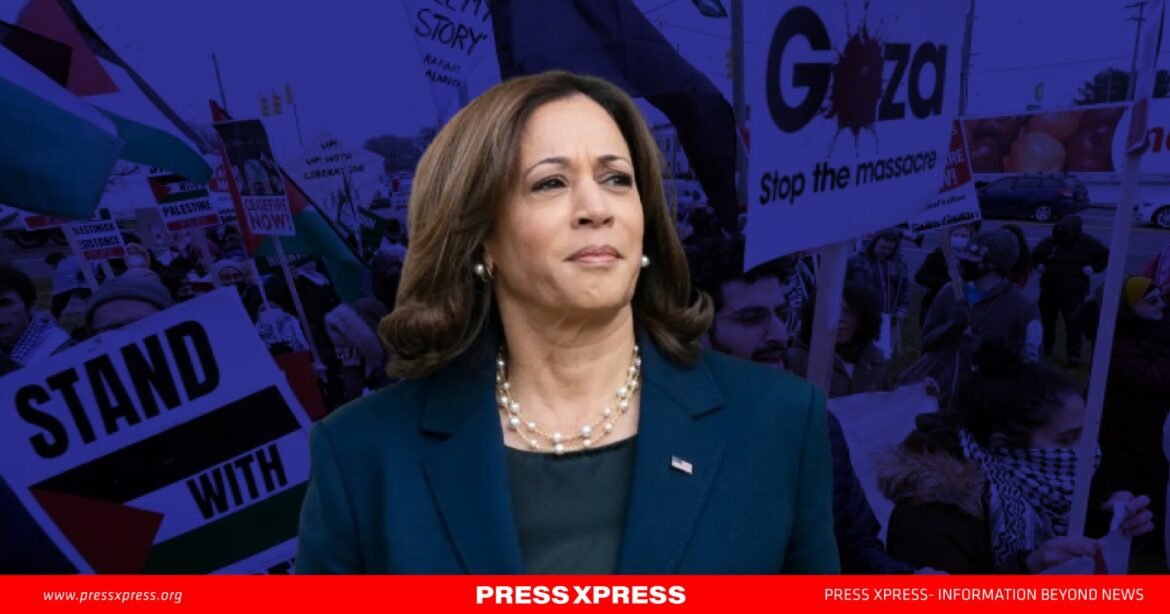- Muslim voters could prove crucial in close White House race
- 40% of Muslims back Stein in Michigan, 12% Harris, poll shows
- Concerned over Gaza, ‘Uncommitted’ group won’t endorse Harris
As the U.S. election season intensifies, Vice President Kamala Harris is stepping up her outreach efforts to Arab and Muslim American communities. With heightened anger over the U.S.’s unwavering support for Israel amid its ongoing military operations in Gaza and Lebanon, Harris is navigating a complex political landscape. Arab and Muslim voters, particularly in swing states like Michigan, hold the potential to influence the outcome of the elections, but many feel sidelined by the Biden administration’s stance. Harris’s attempt to bridge the gap includes meetings with selected community leaders, but critics argue that without a change in policy, these efforts may lack credibility. The situation underscores broader frustrations within these communities, who feel their voices are marginalized in U.S. foreign policy decisions that directly impact their ancestral homelands.

Engagement or Symbolism?
In recent weeks, Kamala Harris has held private meetings with Arab and Muslim leaders in areas with substantial community populations. However, these gatherings have raised concerns about transparency and authenticity. Critics say the meetings, often held behind closed doors with handpicked participants, are more about optics than genuine engagement. For many, the lack of substantive dialogue highlights a perceived disconnect between the Biden administration’s policies and the community’s concerns.
Hussein Dabajeh, a Lebanese American political consultant, points out that such meetings do little to address the core issues affecting these communities, particularly when it comes to U.S. support for Israel. Instead, these engagements are seen as an attempt to pacify community leaders without making real policy commitments. The anger within these communities is not just about being heard but about demanding a shift in the administration’s approach to Israel and Palestine. Without addressing these fundamental grievances, Harris risks alienating a voter base that could be crucial in battleground states come election day.
Unwavering Support for Israel
The Biden administration’s steadfast support for Israel, which includes $3.8 billion in annual military aid and additional funding for ongoing operations, remains a central issue for Arab and Muslim voters. Calls from these communities to condition aid or publicly condemn Israel’s actions have largely been ignored, creating a sense of betrayal among many. Harris’s alignment with Biden’s Middle East policy has only exacerbated this frustration.
Organizations like Emgage have faced backlash for endorsing Harris, with critics arguing that such endorsements disregard the administration’s role in enabling Israel’s military actions. Palestinian American activists like Amer Zahr have openly criticized these endorsements, suggesting that they prioritize political loyalty over justice. This underscores a larger sentiment that Arab and Muslim Americans are often expected to align with candidates who do not represent their interests on foreign policy issues, particularly when it comes to the Palestinian struggle.
Arab and Muslim Voters Seek Alternatives
Disillusionment with the Democratic Party’s stance on Israel has led some Arab and Muslim voters to explore third-party options. The “Abandon Harris” campaign’s endorsement of Green Party candidate Jill Stein reflects a growing willingness within these communities to break from the traditional two-party structure. Stein, while unlikely to win, has attracted support for her vocal advocacy for Palestinian rights, something that resonates strongly with voters frustrated by the mainstream parties’ approach.
Trump, despite his controversial past with Muslim communities, has also seen a surge in support. Some community members view him as a lesser evil compared to a Democratic administration they feel is complicit in the suffering in Gaza and Lebanon. This trend points to an emerging political shift among Arab and Muslim Americans, who are increasingly prioritizing alignment with their values over party loyalty. While this may not lead to a significant third-party turnout, it signals a clear dissatisfaction with the existing political landscape.
Representation or Political Convenience?
As the election approaches, a debate is intensifying within Arab and Muslim communities about what genuine representation looks like. The American-Arab Anti-Discrimination Committee recently condemned community leaders and organizations that align too closely with major party candidates, accusing them of placing political access above justice. This criticism reflects a growing awareness that community endorsements are often driven by political calculations rather than authentic representation of community interests.
This critique underscores the growing realization that community endorsements are often shaped by political calculations, prioritizing strategic interests over authentic representation of community needs and aspirations.
Many within these communities feel that both parties have consistently failed to advocate for justice in the Middle East, particularly regarding the Palestinian cause. The concern is not just about U.S. foreign policy but also about how these alliances affect the perception and treatment of Arab and Muslim Americans within the country. For many voters, the question is not simply about which candidate to support but about challenging a political system that often treats their communities as a mere voting bloc rather than as stakeholders with legitimate policy concerns.


